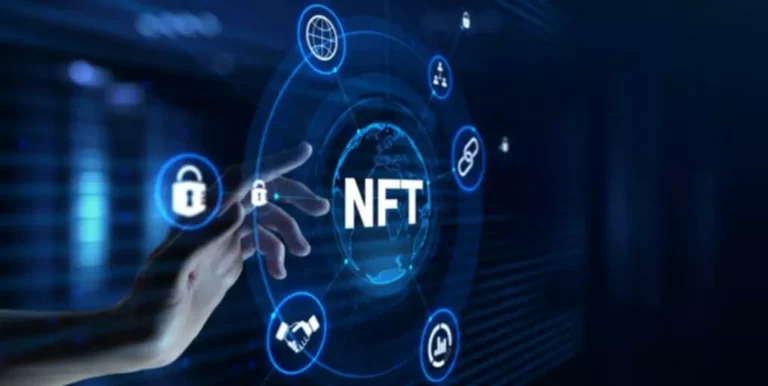Content
These measures include two-factor authentication (2FA), email confirmation, and biometric authentication, such as facial recognition or fingerprint verification. Many exchanges will not allow a user to https://www.xcritical.com/ make transactions until these security measures are properly set up. As mentioned earlier, a crypto wallet doesn’t technically hold a user’s coins. Instead, it holds the key to their coins, which are stored on public blockchain networks.
Public vs. private keys—what’s the difference?
Here are a few factors to keep in mind before you choose a cryptocurrency wallet. In recent years, crypto investors have lost access to their holdings Yield Farming after exchanges like BlockFi and Voyager filed for bankruptcy. Using a secure, malware-free device and avoiding risky actions, like installing unknown apps or clicking on suspicious links, keeps your wallet environment safe. Trust Wallet lets you manage and interact with 10M+ crypto assets across 100+ blockchains.
Cryptocurrency & Digital Assets
It also offers staking and DeFi apps through how do crypto wallets make money its MetaMask Portfolio feature. Just remember that if you’re not a big user of Ethereum and its related tokens, MetaMask might not be much help to you. The free application has some other strengths, such as mobile and browser-based connections to decentralized applications. It also lacks some functionality offered by competitors, such as a desktop app, though its browser extension connects to the Ledger hardware wallet. It is widely regarded as the best hardware wallet for purchasing and exchanging cryptocurrency. It delivers feature-rich mobile and desktop apps when paired with the Ledger Live app.
- We are compensated in exchange for placement of sponsored products and services, or by you clicking on certain links posted on our site.
- The key advantage of this wallet — what makes it “cold” — is that it can be disconnected from the internet.
- Users can also use the wallet to access popular NFT marketplaces like OpenSea, and swap a variety of collectibles.
- Cold storage wallets are generally thought of as more secure when compared to hot storage wallets.
- Your keys are offline, which makes these physical wallets a means of securing cold storage.
- The wallets will be more secure than mobile and web wallets since you don’t rely on a third party to store your precious private keys.
Why Trust Wallet is Ideal for Newbies
If you’re conducting a cross-chain swap, you’ll have to pay any required blockchain fees (generally, both networks will require transaction fees). When a person dies, any cryptocurrency they owned is treated as an asset. Cryptocurrency goes through probate like other assets before going to beneficiaries. The cryptocurrency needs to be listed in the estate plan and can be passed on to named beneficiaries when the owner dies.
To get a “cold” or hardware crypto wallet, you’ll need to buy the physical product, which is generally done through a brand’s online store. Once it arrives, you’ll need to set up the wallet before you start using it. Initially a desktop-only wallet, Exodus now has apps for iOS and Android and is also compatible with Trezor wallets, a popular hardware wallet brand.
Paper wallets and metal wallets are just physical copies of your private and public keys. The data can be shown in hexadecimal notation or as QR codes or both. Your keys are offline, which makes these physical wallets a means of securing cold storage.

This is the seed from which your digital public addresses and private keys sprout—one pair for every account you generate in MetaMask. If you are using a non-custodial wallet, this is when you’ll be given your private key, a random 12 to 24-word string of words. If you lose or forget these, you will not be able to access your crypto. You can enable added security tools, like two-factor authentication (2FA) and biometrics, during or after the set up process. This would be your public key in the case of crypto wallets, and you need to share it with others to be a part of any blockchain transaction. Crypto wallets provide a way to protect secret information that gives you control over your digital assets.
Past performance is not a guarantee or predictor of future performance. The value of crypto assets can increase or decrease, and you could lose all or a substantial amount of your purchase price. When assessing a crypto asset, it’s essential for you to do your research and due diligence to make the best possible judgement, as any purchases shall be your sole responsibility. Our review process is built around a quantitative rating model that weighs key factors like security, costs, privacy, usability, customer support, and features according to their importance. Our team of researchers gathered over 40 data points and conducted extensive research for each of the 19 companies we reviewed. Our team then test-drove each wallet to lend their qualitative point of view.
Your wallet is a means for storing and managing your identity, represented by digital keys. You need these keys to do anything on a blockchain—connect to a dapp, send or receive crypto, buy or sell NFTs, etc. Think of your wallet as a web3 permissions manager, where you grant access to the apps that you want to use. The public key can be compared to a bank account number that you can share with third parties to receive crypto without worrying that your assets will be compromised. Crypto wallets come in many forms, from hardware wallets, like Ledger’s, to mobile apps that you can download on your phone or tablet. SafePal occupies an interesting niche in that you can choose to only use the brand’s hot or cold wallet solutions.

Like a physical wallet, a digital crypto wallet provides a place to safeguard your currency and a means to access it when you want to use it. Crypto exchanges and custodial wallet providers usually also take further steps to ensure the safety of users’ tokens. For example, a portion of the funds is generally transferred to the company’s cold wallet, safe from online attackers. The implication here is that users must trust the service provider to securely store their tokens and implement strong security measures to prevent unauthorised access.
Exchanges offer a wide range of cryptocurrencies, providing users with ample options for asset diversification. When it comes to crypto wallets, the two main options are custodial and non-custodial (aka “self-custody”). In this primer, we’ll discuss the pros and cons of each type, and explain how to set up a self-custody crypto wallet. While there are important security considerations for both software and hardware wallets, new solutions have begun to emerge that aim to integrate the best features of both.
So you’d need more than $100 worth of BTC to instantly transfer it to your DeFi wallet. Our partners cannot pay us to guarantee favorable reviews of their products or services. NerdWallet, Inc. is an independent publisher and comparison service, not an investment advisor. Its articles, interactive tools and other content are provided to you for free, as self-help tools and for informational purposes only. NerdWallet does not and cannot guarantee the accuracy or applicability of any information in regard to your individual circumstances.
Like all software wallets, it stores your private keys on the host device, in this case, your smartphone. This means your mobile crypto wallet is considered a hot wallet and is vulnerable to malware and spyware. In contrast, a hot wallet is one that you can use to transact in cryptocurrency readily, and typically uses software to safeguard your holdings. The point of the hot wallet is to make crypto easy to use, and the trade-off is that hot wallets may be less safe than hardware wallets. Multi-chain wallets are designed to support multiple blockchain networks, enabling users to store, manage, and transact different types of cryptocurrencies from a single interface. Unlike single-chain wallets, which are limited to a specific blockchain, multi-chain wallets provide a unified experience for handling various assets.
The downside of a mobile wallet are fraud, malware and hacks, and obviously, losing your mobile device. A cryptocurrency wallet refers to a physical medium, device, service, or application that maintains private and/or public passwords for crypto transactions. In addition to the basic purpose of storing keys, it also makes the owner of the digital pseudonymous.

Tinggalkan Balasan